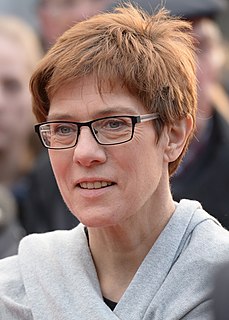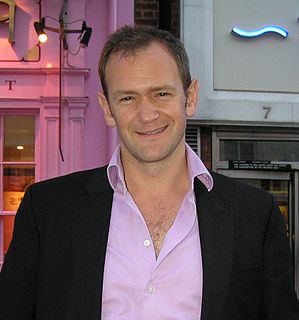A Quote by Annegret Kramp-Karrenbauer
We have to be strong in ourselves. Whoever defines themselves only through their opponents risks making their entire programme... dependent on others.
Related Quotes
If one is okay with police having guns - whoever is designated as having authority - but panicked at the thought of their fellow man or themselves having guns, then that is someone who does not think like a free person. He places a magical aura around whoever is in charge and only thinks they can wield power. This will come up again in other areas, such as letting government make economic decisions but fearing individual people making those decisions themselves.
I believe I'm a caterpillar buried deep down under the ground. The entire earth is above me, crushing me and I begin to bore through the soil, making a passage to the surface so that I can penetrate the crust and issue into the light. It's hard work boring through the entire earth, but I'm able to be patient because I have a strong premonition that as soon as I do issue into the light I shall become a butterfly.
There is a powerful craving in most of us to see ourselves as instruments in the hands of others and thus free ourselves from the responsibility for acts which are prompted by our own questionable inclinations and impulses. Both the strong and the weak grasp at this alibi. The latter hide their malevolence under the virtue of obedience: they acted dishonorably because they had to obey orders. The strong, too, claim absolution by proclaiming themselves the chosen instrument of a higher power -- God, history, fate, nation, or humanity.
Indecision is debilitating; it feeds upon itself; it is, one might almost say, habit-forming. Not only that, but it is contagious; it transmits itself to others. . . . Business is dependent upon action. It cannot go forward by hesitation. Those in executive positions must fortify themselves with facts and accept responsibility for decisions based upon them. Often greater risk is involved in postponement than in making a wrong decision.
When large companies take on risk, then they impose risks on the rest of the system. And these are systemic risks and these systemic risks we never used to think were really that important, but as soon as we recognize how the financial sector - the risks the financial sector takes on can impact the entire global economy, we realize that those risks needed to be controlled for the social good.
The remarkable thing is that we really love our neighbor as ourselves: we do unto others as we do unto ourselves. We hate others when we hate ourselves. We are tolerant toward others when we tolerate ourselves. We forgive others when we forgive ourselves. We are prone to sacrifice others when we are ready to sacrifice ourselves.
To transform the world, we must begin with ourselves; and what is important in beginning with ourselves is the intention. The intention must be to understand ourselves and not to leave it to others to transform themselves or to bring about a modified change through revolution, either of the left or of the right. It is important to understand that this is our responsibility, yours and mine.
A psychologist once asked a group of college students to jot down, in thirty seconds, the initials of the people they disliked. Some of the students taking the test could think of only one person. Others listed as many as fourteen. The interesting fact that came out of this bit of research was this: Those who disliked the largest number were themselves the most widely disliked. When we find ourselves continually disliking others, we ought to bring ourselves up short and ask ourselves the question: "What is wrong with me."
Don Juan assured me that in order to accomplish the feat of making myself miserable I had to work in the most intense fashion, and that it was absurd. I had now realized I could work just the same in making myself complete and strong. "The trick is in what one emphasizes," he said. "We either make ourselves miserable, or we make ourselves strong. The amount of work is the same."

































